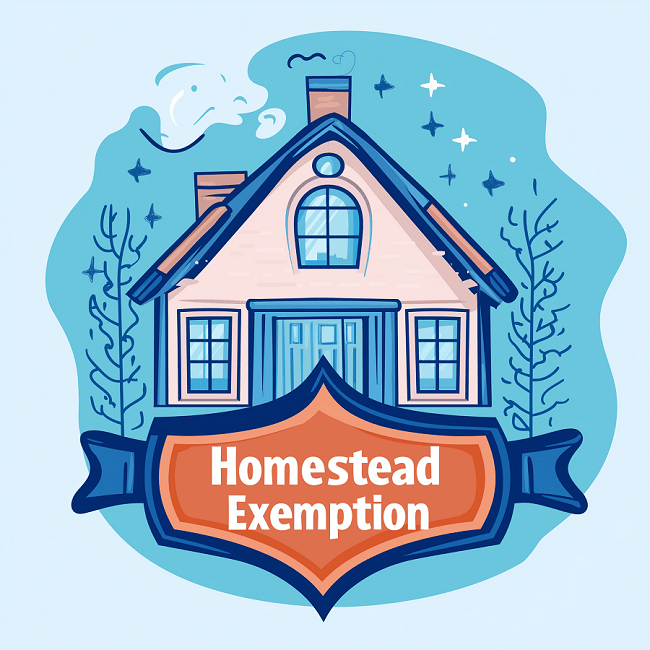The death of a loved one is undoubtedly a considerable toll on almost all of us. Whenever someone dies, his/her property goes through a long process referred to as “Probate” to authenticate a Last Will and Testament, or to decide what happens to the estate if there is no Last Will and Testament.
One of the most commonly asked questions during the probate process is: who can apply for probate?
Practically anyone with a legal interest in an estate can apply for probate. This includes anyone named in the Last Will & Testament, immediate family members, remote family members, creditors, and in-laws.
But, anyone with a legal interest can apply, does not mean that all applications or petitions for probate are created equal. There is a hierarchy for determining who has priority when applying for probate. For example, a surviving spouse will always have priority over creditors.
In this blog post, we will dive in deep to explore answers to some of the most commonly asked questions concerning the initial application/petition for probate:
- Who Can Apply For A Probate?
- What’s The Hierarchy Of Interested Persons?
- When Is Someone Qualified To Act As A Personal Representative?
Well, then!
Let’s dive in.
Who Can Apply For A Probate?
Before we dive in deep, let’s explore what probate is and some of the most-common terminologies involved, such as executors and administrators, so that you can have a better understanding of the entire concept.
First of all, probate is a court-supervised process of authentication of a Last Will & Testament of someone who died. It involves locating as well as determining the overall value of the deceased person’s assets, paying the final bills, taxes, and ultimately distributing the rest of the estate to the rightful heirs/beneficiaries.
The process starts when someone files an application or petition for probate. Practically, anyone with a legal interest can submit an application/petition for probate. For example, the Uniform Probate Code (“UPC”) identifies the following persons who can apply for probate:
- Any person named as an executor of a will;
- A surviving spouse;
- Anyone named as a beneficiary in the Will;
- Heirs of the decedent; and
- Creditors of the decedent, but only after 45-days have passed from the date of death.[i]
This may seem like a small list, but it’s not. The term UPC definition of “heirs” contains an additional list of people, some of whom may surprise you. For example, the following “heirs” may apply for probate:
- Parents;
- Brothers & Sisters
- Grandparents;
- Aunts & Uncles;
- Cousins; and
- Step-Children.[ii]
Also, the California Probate Code adds the following persons to the list:
- A mother or father-in-law; and
- A brother or sister-in-law.[iii]
As you can see, the list of people who can apply for probate is extensive.
The application/petition for probate asks the probate court to appoint the applicant/petitioner as the personal representative of the estate.
The personal representative is the person who is responsible for the estate administration through the distribution of the final assets. There are two types of personal representatives: executors and administrators.
Who Is An Executor?
An executor is someone named in a Last Will & Testament to be in charge of the estate after the person dies. In other words, an executor is a personal representative who is specifically named in a Will. He/she holds the highest priority to be appointed as a personal representative.
What If There Is No Last Will & Testament?
If there’s no will, then the personal representative is called an “administrator.” Like the executor, an administrator is a personal representative in charge of an “intestate” estate. Intestate means that a person died with no Will or Trust.
Who should the Court Appoint as Personal Representative?
In most cases, the personal representative is the closest relative to the decedent.
However, just because someone is named in a Will or is the closest relative to the decedent does not mean that he/she needs to accept an appointment as the personal representative. Indeed, as discussed below, some people may not qualify to be the personal representative.
Probate courts have a hierarchy of persons who can serve as the personal representative. So if someone resigns, refuses the appointment, or is unqualified, the court can simply look to the next person in the list.
The lists described above are the types of persons the courts can appoint to be the personal representative. If you are not on that list, you cannot apply for probate and cannot be the personal representative.
But what happens if multiple persons want to be the personal representative? Well, the courts follow a statutory priority to determine which person has a higher priority for appointment.
What’s the Hierarchy Of Interested Persons?
If you are in a Uniform Probate Code State, here is the list of possible personal representatives in order of priority:
- The person named as executor in the Will;
- The surviving spouse but only if he/she is also named as a beneficiary of the Will;
- The persons named as a beneficiary in the Will;
- The surviving spouse, if he/she is NOT a beneficiary of the Will;
For the persons not named in a Will or if the person died intestate (without a Will) here is the continued order of priority:
- Children;
- Parents;
- Brothers & Sisters;
- Grandparents;
- Aunts & Uncles;
- Cousins;
- Step Children;
- Creditors, but only if more than 45-days have passed since the person died.[iv]

This may sound a little confusing so let me give you two examples:
Example 1: If someone named his/her step-children in the Will, but excluded his/her children, then even though the children have a higher priority on the list of heirs, the step-children would be appointed over the children because the step-children are specifically named in the Will.
Example 2: If I name my cousin the executor of my Will, then he/she would be appointed over my wife because the person named as executor has the highest priority. Thus, even though my cousin would have the lowest priority, he/she would outrank a surviving spouse if I specifically name my cousin as executor.
If you live in California the priority list is similar, but includes a few extra people:
- The person named as executor;
- A surviving spouse;
- Children;
- Grandchildren;
- Parents;
- Brothers & Sisters;
- Nieces & Nephews;
- Grandparents;
- Aunts & Uncles;
- Step Children;
- Cousins;
- Mother or Father-in-law;
- Brother or Sister-in-law;
- Conservators or Guardians of the Estate at the time of death;
- Public Administrator;
- Creditors;
- Any other person.[v]
In almost every case, the person who is nominated as the executor in a Will holds the highest priority and can instantly apply for probation.
He/she can’t transfer his/her priority by simply nominating anybody else.
However, everyone else can simply transfer their priority and nominate someone else to be the personal representative.
If the judge finds the person with the highest priority to be not capable and unsuitable, then he/she can appoint somebody else.
Just because you have the top priority doesn’t mean that you will surely be selected as the personal representative.
It merely means that if somebody else with a lower priority challenges you, then you’ll likely be appointed.
Who Is NOT Qualified to Act As the Personal Representative?
A person is not qualified to act as a personal representative if:
- He/she is under 21 (In some states, it’s 18)
- He/she is incapacitated or has a conservator or guardian
- The person is incapable of exercising the duties of the office
- The person has embezzled money from the estate
- The person is not a resident of the United States (unless named in the Will)
- The person does not have good enough credit to qualify for a probate bond
Court, in most cases, honors the decedent’s wishes. However, if he/she falls into any of the above these categories, the court will not appoint him/her as the personal representative.
Heirs and beneficiaries can contest a will and object to the person trying to be appointed as a personal representative.
This will result in a full-blown trial, in which the heirs and beneficiaries can present evidence as well as testimony to convince the court to overturn provisions of the Will or else appoint someone else as the personal representative.
In most cases, the court prefers to honor the wishes of the decedent.
And if the decedent didn’t create a will before his/her death, the court will use the priority list above to decide who should be appointed as the administrator of the estate.
In most cases, propose courts prefer designating the surviving spouse. So if you are trying to challenge the surviving spouse, you may have an uphill battle unless you can establish that he or she is not qualified.
Can A Personal Representative Seek Professional Help?
The personal representative can always seek professional help. Both the Uniform Probate Code and the California Probate Code specifically give the personal representative the power to hire professional services. Professional Help
Conclusion
Almost anyone can apply for probate, but not everyone can be appointed to be in change od a probate estate. There is a hierarchy of persons who are preferred over others for control of the estate. Moreover, some persons are not qualified to be in charge. When in doubt, file your application or petition for probate and let the court decide. Or hire an attorney.
If you would like to learn more about the probate process check out our other articles:
How to Probate a Will in 11 Detailed Steps
What is Probate and Why Avoid It?
[i] Uniform Probate Code § 3-203
[ii] Uniform Probate Code §§ 1-201(20) & 2-103
[iii] California Probate Code §§ 48 & 8000




